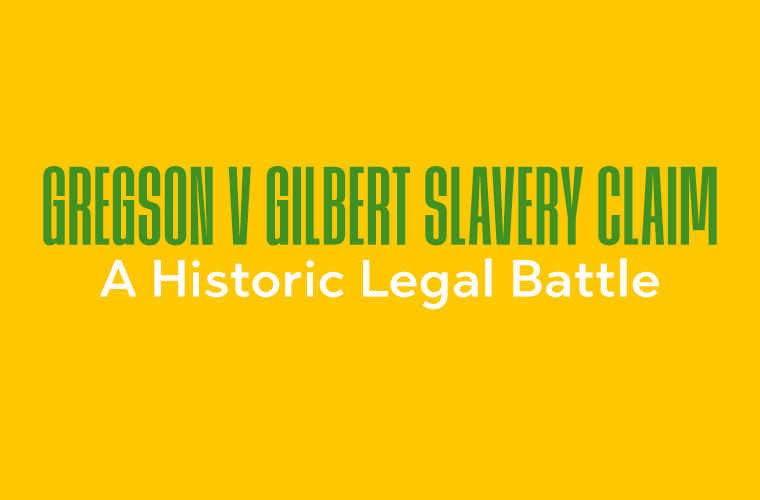Introduction
In the annals of legal history, few cases have had as profound an impact on the fight against slavery as Gregson v Gilbert. This landmark case, which took place in England in the late 18th century, not only challenged the legality of the slave trade but also paved the way for future abolitionist movements. In this article, we delve into the details of this historic legal battle, exploring its significance and the lasting effects it had on the fight for freedom.
Background
The case of Gregson v Gilbert revolved around the question of whether or not the transportation of slaves from Africa to the Americas was a lawful activity. The plaintiff, James Gregson, a Liverpool merchant, argued that his insurance claim for the loss of 132 enslaved Africans during a voyage from Sierra Leone to Jamaica should be honored. The defendant, Thomas Gilbert, an underwriter, refused to pay the claim on the grounds that the slave trade itself was illegal.
Legal Arguments
The heart of the case hinged on conflicting interpretations of British law. Gregson’s legal team argued that since the British Parliament had not explicitly outlawed the slave trade, it must be considered a lawful enterprise. They contended that the insurance policy, which covered the loss of “cargo,” should extend to enslaved individuals. Gilbert’s defense, on the other hand, relied on moral and humanitarian grounds. They asserted that the slave trade violated natural law and basic human rights, and therefore, any claims associated with it should be deemed void.
Court Proceedings
The case was heard in the Court of King’s Bench in London in 1783. Chief Justice Mansfield presided over the trial, which attracted significant public attention. The courtroom was packed with spectators, including abolitionists and supporters of the slave trade. The trial lasted for several days, during which both sides presented their arguments and called witnesses to testify.
Verdict and Impact
In a groundbreaking decision, Chief Justice Mansfield ruled in favor of Gilbert, declaring that the slave trade was “odious” and “against natural law.” He further stated that any contracts associated with such a trade were “void” and “against public policy.” This landmark verdict sent shockwaves throughout Britain and beyond. It marked the first time that a court had explicitly declared the slave trade as morally repugnant and legally indefensible. The consequences of Gregson v Gilbert were far-reaching. The ruling dealt a significant blow to the slave trade, emboldening abolitionist movements and providing a legal basis for their cause. It also led to increased scrutiny of British involvement in the slave trade and paved the way for subsequent legislation aimed at its abolition.
Legacy
Gregson v Gilbert played a pivotal role in shaping public opinion on slavery and setting the stage for its eventual abolition. The case helped galvanize anti-slavery sentiment, both in Britain and internationally. It provided abolitionist campaigners with a powerful legal precedent and emboldened them to push for legislative change. In 1807, just over two decades after the Gregson v Gilbert ruling, the British Parliament passed the Slave Trade Act, effectively outlawing the transatlantic slave trade. This landmark legislation was followed by further acts in subsequent years that ultimately led to the emancipation of enslaved individuals throughout the British Empire.
Conclusion
Gregson v Gilbert stands as a testament to the power of the law in challenging entrenched systems of oppression. This historic legal battle not only exposed the moral bankruptcy of the slave trade but also set in motion a series of events that would lead to its eventual demise. The case serves as a reminder that justice can prevail even in the face of seemingly insurmountable odds and that individuals who dare to challenge injustice can leave an indelible mark on history.

